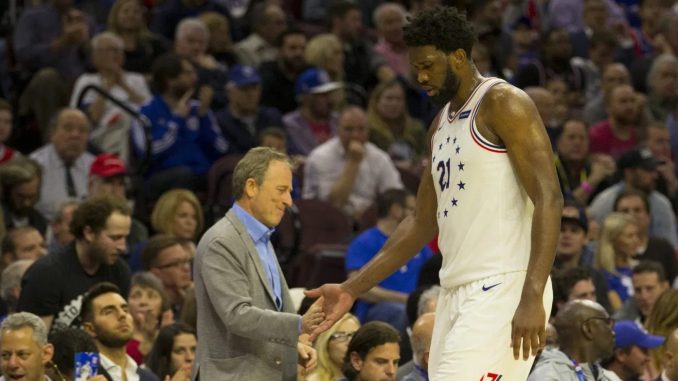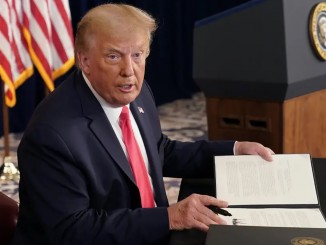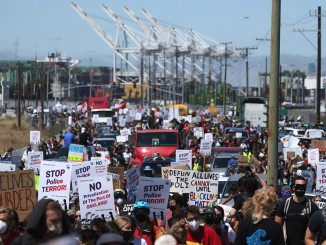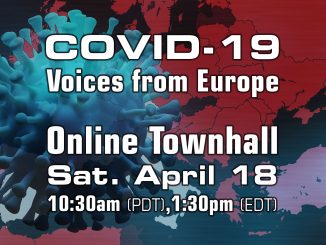
This article is reprinted from The Undefeated:
In 2011, hedge fund manager Josh Harris led a group of 16 investors that purchased the Philadelphia 76ers from Comcast-Spectacor for $280 million, pledging to turn the lifeless team into a “world-class franchise.”
Four years later, Harris, whose net worth is listed at $3.8 billion by Forbes magazine, purchased an 18% stake in English Premier League club Crystal Palace for a banal $75 million investment alongside a partner.
In 2017, Harris bought a house on the Upper East Side of Manhattan for $45 million. According to NBC Sports Philadelphia, the annual taxes on the 21,000-square-foot townhouse – with more than a dozen marble fireplaces – was listed at more than $340,000 at the time of purchase.
Yet on Monday, the New York Times reported that the Sixers’ ownership group (which also owns the New Jersey Devils) was requiring at-will employees making at least $50,000 a year to take up to a 20% temporary salary reduction due to the work stoppage caused by the coronavirus pandemic.
As the rest of the country weathers a hurricane of inadequate health care, mass layoffs and food shortages at grocery stores, a corporation worth an estimated $2 billion considered docking the pay of some of its lowest-paid employees to soften the blow of projected financial losses.
That is until Joel Embiid stepped in.
On Tuesday, ESPN’s Ramona Shelburne reported that Embiid, the team’s star center, would be donating an undisclosed amount to Sixers employees whose salaries would be reduced during the suspension of the NBA regular season.
As public shaming tends to do, the Sixers immediately saved face. Within four hours of Embiid’s pledge, Harris announced that the team would not be requiring salary reductions: “After listening to our staff and players, it’s clear that was the wrong decision. We have reversed it and will be paying these employees their full salaries. … To our staff and fans, I apologize for getting this wrong.”
Embiid’s generosity once again exposed the modern absurdity of players taking up the mantle of employers with the NBA on pause for the next month or more.
Two weeks ago, a day after commissioner Adam Silver suspended the season, Cleveland Cavaliers forward Kevin Love announced on his personal Instagram that he would be donating $100,000 through his philanthropic fund to the team’s arena and support staff. Over the next few days, players across the league, including Giannis Antetokounmpo, Zion Williamson and Blake Griffin, had all pledged to donate funds to their respective teams’ arena workers.
It is no doubt commendable for Embiid and others to reach into their own coffers to support the hundreds of workers who support them and their teammates, but in an ecosystem where billionaire team governors exist, the burden should not be theirs.
Cavaliers governor Dan Gilbert, also the owner of one of the largest retail mortgage lenders, has a net worth of more than $6 billion, according to Forbes. Detroit Pistons governor Tom Gores is worth $5.7 billion. The New Orleans Pelicans’ Gayle Benson, who also owns an NFL team, is worth $3.2 billion. Milwaukee Bucks co-governors Wes Edens and Marc Lasry are worth more than $4 billion combined.
Yet with all that wealth, it took players to start giving away money for some governors to start announcing plans? Since Love’s announcement, governors of NBA teams – and many in the MLB and NFL – have either agreed to pay hourly workers during the work stoppage or announced intentions to.
In a country where the richest 1% owns 40% of the nation’s wealth, it is not the responsibility of the proletariat to take care of itself.
When the Notre Dame cathedral in Paris went up in flames back in April 2019, billionaires across the globe rushed to pledge more than $1 billion to rebuilding efforts. But actually, it was small donors from America and France who helped finance the project after mostly all the billionaires reneged. On Twitter, non-rich people are starting fundraisers for authors missing book tours, hourly workers missing shifts, renters missing monthly rent payments and parents unable to afford child care for their newly knighted work-from-home kids due to the coronavirus, when one check from Amazon owner Jeff Bezos could wipe out a ton of virus-related debt.
On March 13, ESPN’s Adrian Wojnarowski reported that there is a provision in the current collective bargaining agreement that would allow teams to dock percentages of player salaries in the event of a lost season. If this provision were to be triggered, would the league’s richer players then help pay the salaries of those with smaller contracts?
It feels blasphemous to compare Embiid, a man who signed a $146 million contract extension with the Sixers in 2017, to good Samaritans on the internet who likely can’t afford to miss one paycheck. But Embiid’s salary compared with those of team owners is comparable to the difference between a McDonald’s cashier and the CEO of the company.
NBA governors shouldn’t need their cashiers to take care of the other workers.
Martenzie Johnson is an associate editor for The Undefeated.
Featured image credit: Mitchell Leff




